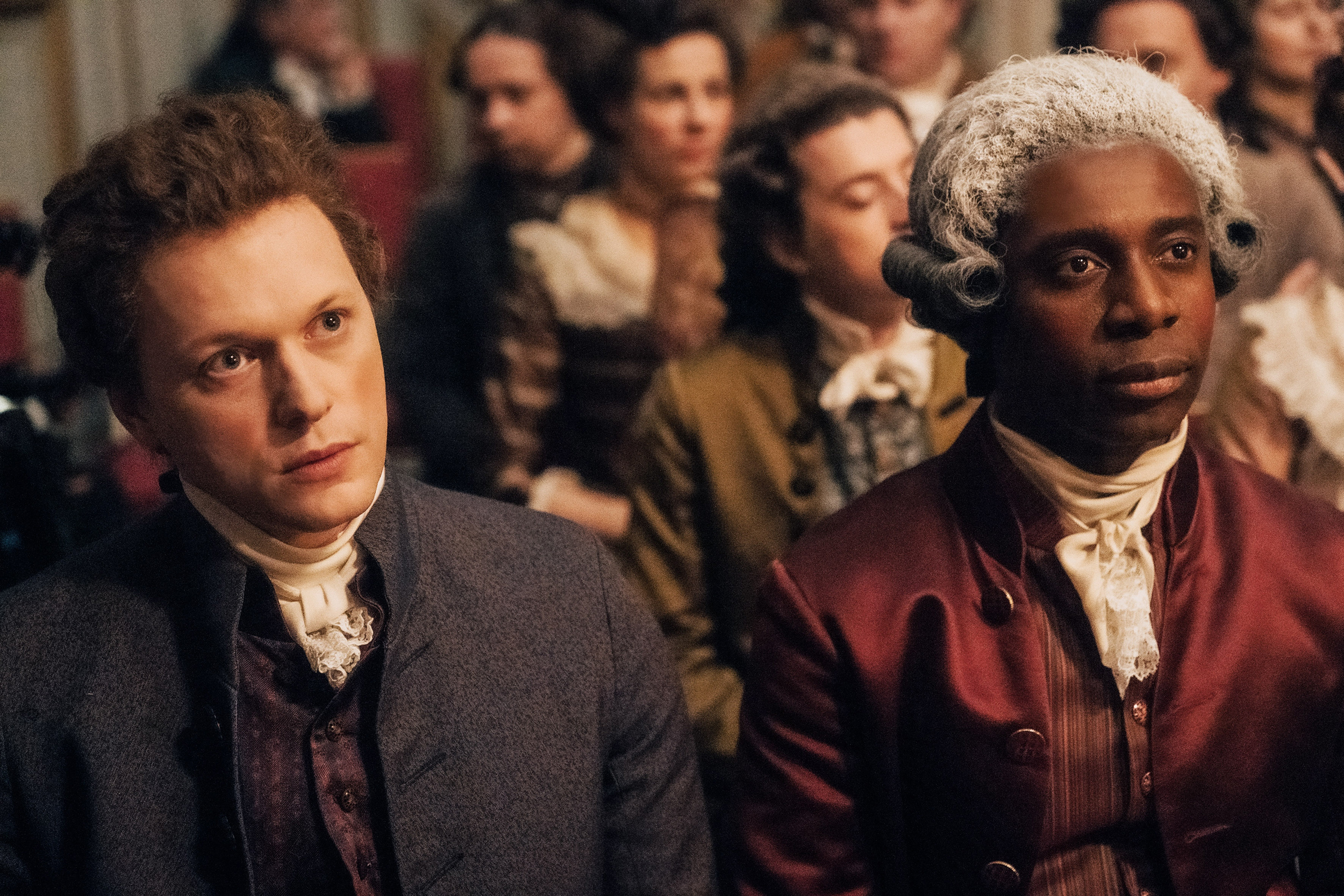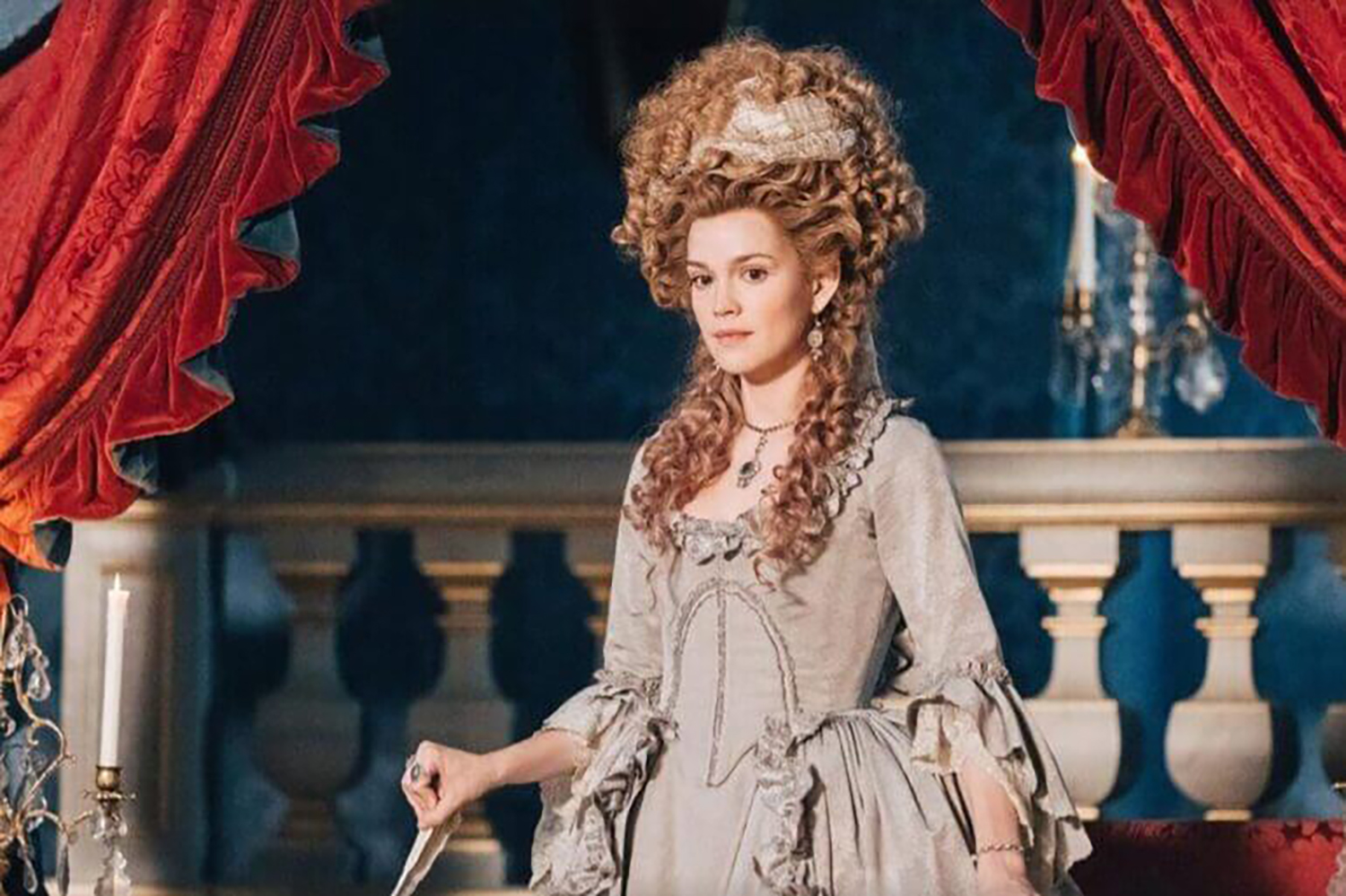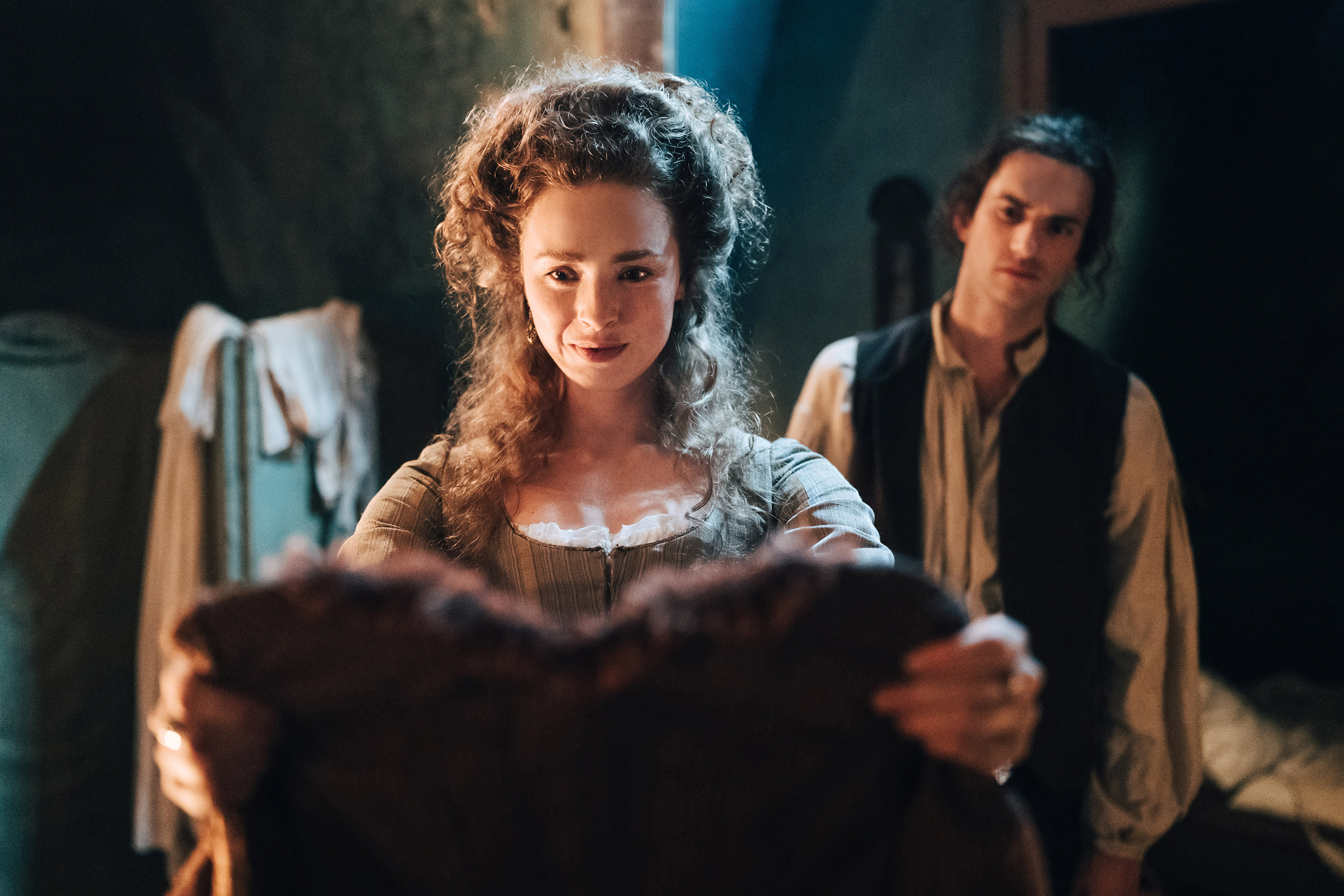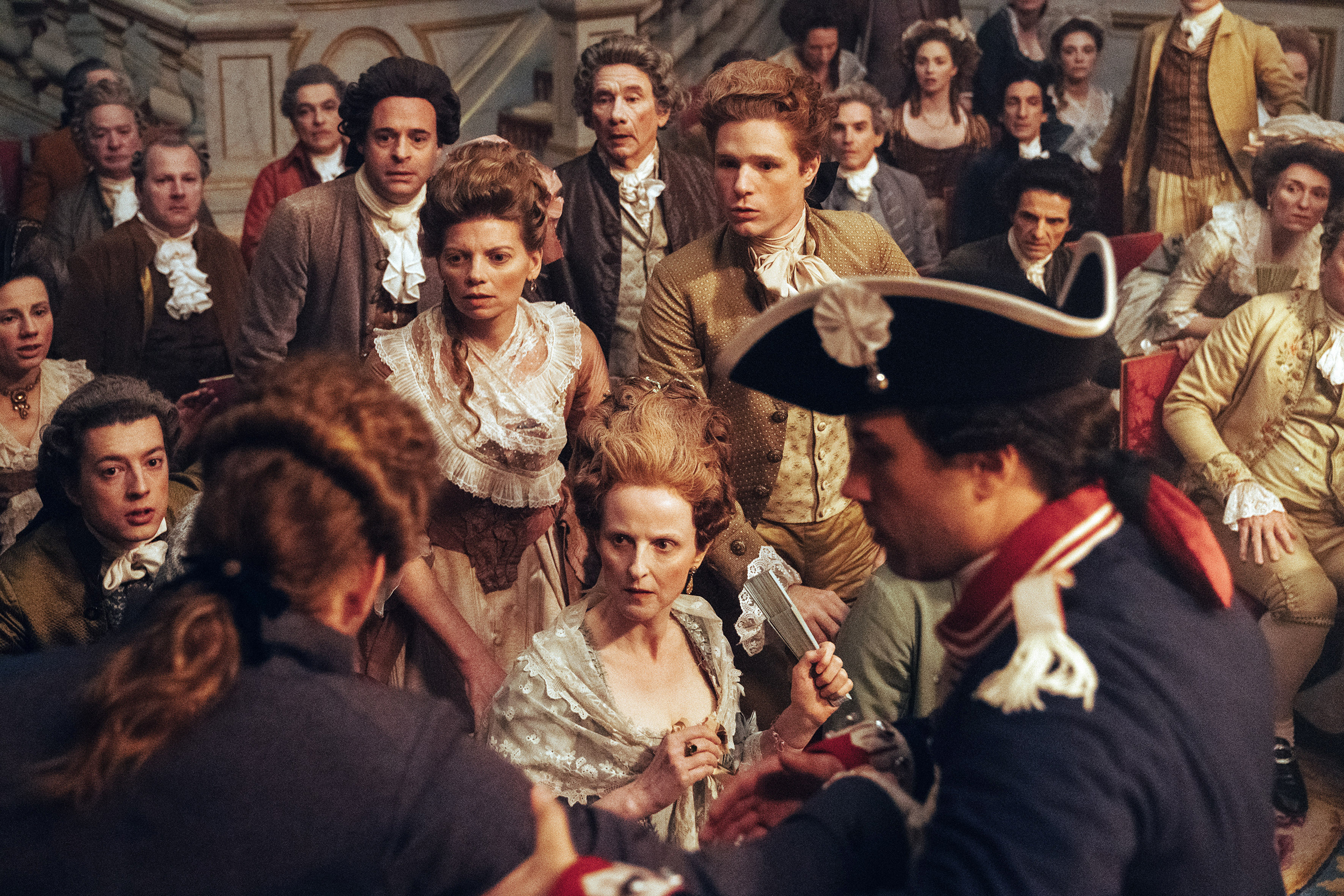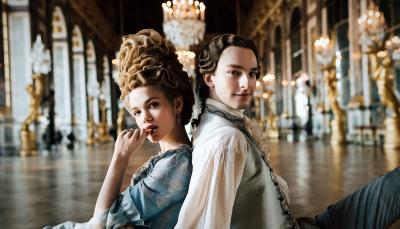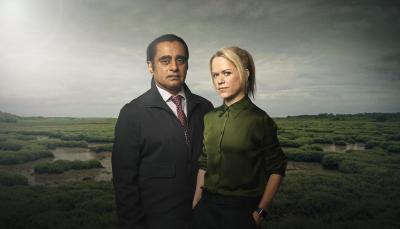The Play’s the Thing in 'Marie Antoinette’s Second Episode “A Poison Pen”
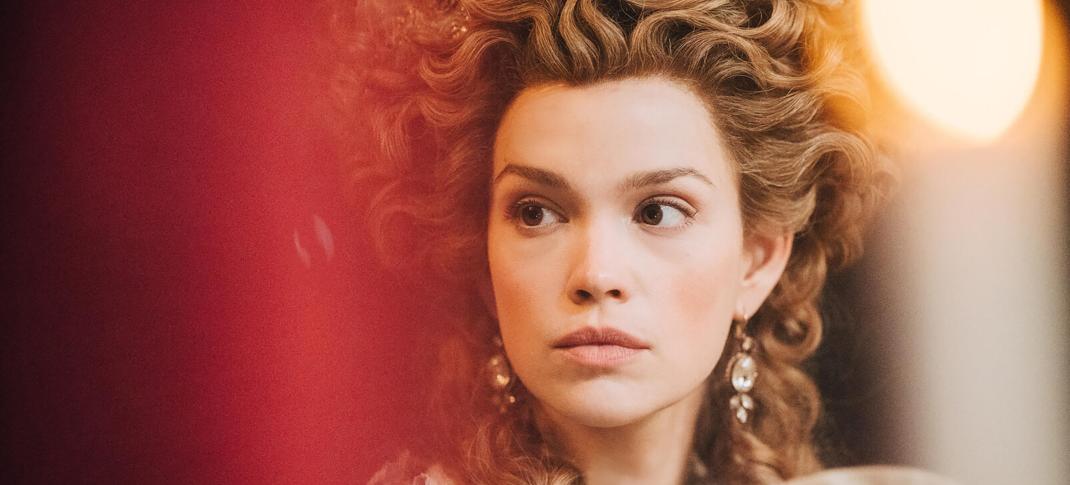
Emilia Schüle as Marie Antoinette in 'Marie Antoinette' Season 2
Caroline Dubois/Capa Drama/Canal+
Marie Antoinette’s “A Poison Pen” is packed with illicit affairs and intricate scheming. The episode’s title refers to Pierre-Augustin Caron de Beaumarchais and his new play, The Marriage of Figaro, the premiere performance of which put another nail in the coffin for the king and queen of France. You may recall Chartres’ lover, Félicité, and Beaumarchais were plotting to stage his play at Versailles, but Louis banned it after reading it and clocking the anti-monarchy sentiment. Beaumarchais swears he’s edited out the controversial content. With Antoinette’s encouragement, Louis agrees to an invite-only performance at Versailles “if there’s no mention of politics, religion, or government.”
With the new monarchy-agnostic, king-approved version, rehearsals begin. Looking for something to lift her spirits after her miscarriage, Antoinette decides she'll join the cast in the lead role of the Countess's servant, Susanna, another opportunity for her to play-act as a peasant. Other courtiers round out the cast, including Provence’s wife, Josephine (Roxane Duran). Yolande seizes the opportunity to exclude Lamballe and distance her further from the queen, telling her all the parts are taken.
Antoinette is stunned to discover that von Fersen, whom she’s been avoiding since his recent return from America, has been cast opposite her. (This is a deliberate move by Beaumarchais to unnerve the queen.)
The constant proximity to von Fersen proves too much for Antoinette when he professes his love. The historical records are unclear, but the show takes a stance that they absolutely had an affair. They consummate their passion in a patch of woods that’s not as hidden as they believe: Josephine witnesses their indiscretion. Meanwhile, Louis is trying to keep France afloat and suggests cuts to the budget. Calonne instead proposes more spending so France doesn’t appear weak and to increase their loans to pay for it. He also advises raising taxes on the clergy and nobility, whom he says control Parliament yet contribute nothing to the state, and Louis should be taxing by means, not birth. The king refuses.
Josephine, who spends much of the time drunk to escape her miserable marriage, gets a much-welcome diversion when Beaumarchais hires Marguerite (Lujza Richter) as her acting coach. Although the playwright plots against the king and queen, his motives with Josephine do not seem like a ploy – he just finds her acting atrocious. Josephine and Marguerite quickly forge a bond; Josephine has found a friend and new lover, which softens her.
So much so that when Josephine reveals that she knows Antoinette’s secret, she also indicates she won’t tell anyone. They share a cute moment of sisterhood and mutual understanding, with Josephine insisting they’re entitled to a private life.
Louis asks about Antoinette and von Fersen, but Yolande doesn’t betray her lady, assuring the king nothing is going on. However, Louis catches Antoinette and von Fersen in a room alone backstage. Although they were only talking (about their affair, ahem), Louis abruptly cancels the performance, telling Antoinette to remember who she is. His comment echoed Provence's complaints when he advised Louis to cancel the play – the queen inviting scorn by playing a character below her station. Antoinette attempts to repair the rift, apologizing for leaving herself open to ridicule. He’s also upset about von Fersen; Antoinette insists they’ll never be alone together again. Louis calms down and reconsiders Beaumarchais being allowed a public performance of Figaro.
Our favorite new schemer, Jeanne, used funds from her fake charity to buy a fancy new dress for court. In an unspecified amount of time, she managed to gain a reputation as a personal friend of the queen, and Antoinette’s absence from court life during her recuperation means she can’t deny their connection. Jeanne starts pulling strings all over, most directly with Lamballe and Rohan.
Lamballe is the only one at court who is suspicious of Jeanne. Jeanne notices the rivalry between Lamballe and Yolande and leverages Lamballe’s insecurity to throw her off her scent. There’s a great thread where Jeanne deftly steals a perfume bottle directly from Antoinette’s person – which happens to be a gift from Lamballe. When Lamballe accuses Jeanne of lying about her charity and friendship with the queen, Jeanne insists she’s no thief and that the queen has forgiven her past mistakes – which Lamballe would know if they were “still close.” Right for the gut! Lamballe confronts her about where she got the perfume bottle, and Jeanne claims it was a gift from the queen. Another punch; Lamballe backs down.
Rohan introduces himself to Jeanne and asks for a private appointment. He’s been primed by Jeanne’s sidekick Villette, who “leaked” information about Jeanne’s close friendship and influence over the queen. Ever the sycophant, Rohan hopes that making a “significant donation” to the queen’s new favorite charity will win him her favor.
He meets Jeanne at a new apartment she’s rented to suit the part of a countess, Jeanne de la Motte, a self-proclaimed title that may be warranted as she was a descendant of King Henry II. Jeanne says the queen prefers charity to remain anonymous. She’ll tell the queen of Rohan’s generosity, but he should never speak to her about it directly. Later, Jeanne and Villette marvel over Rohan’s donation; it’s enough to pay for another month’s rent and get Villette the best inks to “become the queen.”
Over at the Palais Royal, Chartres notices Count Cagliostro (Selva Rasalingam) advertising his services as an occultist. Rohan is Cagliostro’s patron and is launching him in Paris; Félicité invites him to perform. After his show, which consists of cold readings and “visions,” Félicité discusses her ambition for Chartres. He’s well-positioned to bring change to France, but lazy. She convinces Cagliostro to have a vision, which he delivers: “The Dauphin will not inherit the throne of France. France will seek a new king, a prince of the blood, who is present in this very room.” Instead of Chartres, it’s Provence who gets inspired.
The Marriage of Figaro gets its public premiere in Paris. Chartres and Félicité are in attendance, as well as Antoinette, Louis, Provence, Josephine, and Marguerite. Grumpy Chartres doesn’t understand Félicité’s plan nor how a simple play will affect the monarchy. But it all becomes clear when the main character delivers dialogue skewering the noble class. This is not the version the king approved; Beaumarchais has betrayed the crown and changed the text. Louis stops the play and has Beaumarchais arrested, which results in the entire audience booing the king and yelling about censorship.
Protests form outside the Bastille where Beaumarchais is imprisoned, and Chartres gives credit to Félicité’s strategy. “The play showed Louis for the tyrant he really is,” she says, and that to win the prophecy Chartres must replace Louis in the people’s hearts and minds.
Antoinette deflects Louis’ blame onto Beaumarchais, while Provence yells they’re calling the playwright a hero, and Louis a despot. Louis explodes: “I am king!” Then he takes off on his horse, riding recklessly around the grounds and disappearing for hours.
In his absence Provence invades Louis’ office, preparing to take over and make a statement about France’s rule. He assures the queen that she and her children will be “well looked after.” Antoinette sees Louis finally returning to the palace, hobbling, and agrees they should issue a statement: the king has sprained his ankle.
Antoinette realizes her very delicate position, which she articulates to her advisor Breteuil: if anything happens to Louis, Provence will destroy her and the children. But she owns nothing; everything belongs to France. She says she needs to be a queen with “real power” and readies herself for a fight.
Marie Antoinette Season 2 airs Sundays on most local PBS stations, the PBS App, and the PBS Masterpiece Prime Video Channel at 10 p.m. ET. All eight episodes of the new series are available on PBS Passport for members to stream. Season 1 is available to stream for members on PBS Passport and on the Prime Video Masterpiece Channel.

